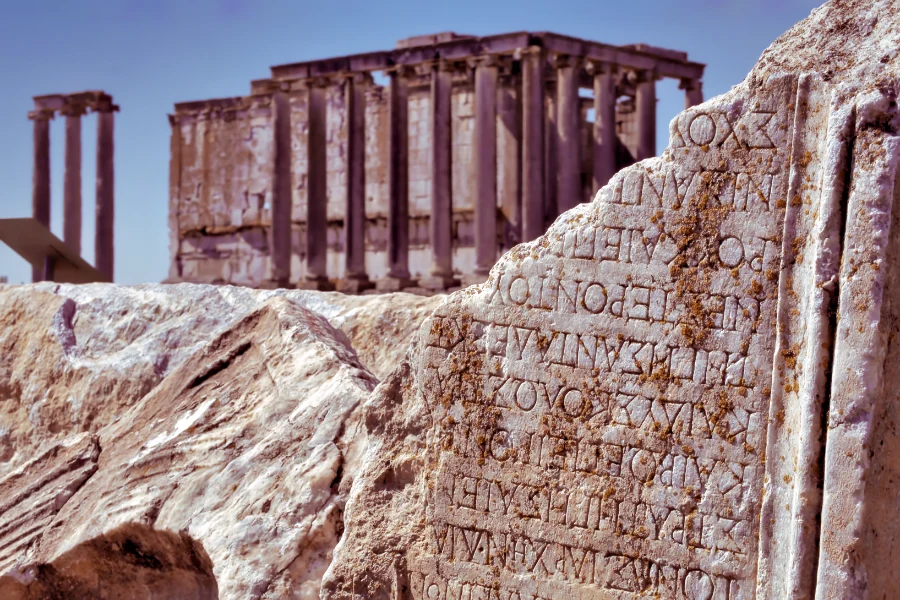The New Testament is one of the most important religious texts in history, containing Christian teachings and stories, it was written in Greek (Koine Greek or Common Greek) because it was the language of educated people of that era. This choice had a lot to do with cultural factors as well as linguistic ones. Let’s dive deeper and explore first the evolution of Common Greek and its establishment as the language used in the New Testament.
Explanation of the development of Koine Greek

Koine Greek (also known as Byzantine Greek) is the language of the New Testament. Koine Greek was gradually developed over a period of about two centuries, from the 3rd century BC to the 2nd century AD. Alexander the Great conquered the Persian Empire in the 3rd. BC century and later on it was divided among his generals but the Greek language was spoken from India and Afghanistan in the east to the France coast in the west. The city of Alexandria, Egypt, was named after him. In Alexandria where an Alexandrian dialect of Ancient Greek was spoken by scholars and other educated people.
The main factors that contributed to the development of Koine Greek were:
1) The growth of the Roman Empire. This made it possible for people from all over the empire to come to Alexandria and learn from the best teachers. As a result, Alexandria became a centre for education and learning in general.
2) The growth of Christianity. This religion spread throughout Rome and other parts of the empire, and many people started worshipping in Greek instead of their native languages. This increased the demand for books in Greek, which led to the development of literary standards in that language.
3) The spread of education throughout society. As more people became literate, they started writing books in their own language and also wrote translations or adaptations of existing works in Ancient Greek into their own language. This led to the wider use of Koine Greek among educated people throughout the empire.
Characteristics of Koine Greek

Some of the key characteristics of Koine Greek that contributed to its development were:
1) It was based on the dialects spoken in Alexandria and other parts of the empire. This made it easy for people to understand each other, as the dialects were similar.
2) It had a well-developed system of grammar. This helped to make the language easier to communicate, as it had rules governing how words should be used.
3) It had a rich vocabulary. This was because many books were written in Koine Greek, and it became the language of scholarship and education.
The Importance of the Greek Language for the early Christian Communities

In the first two centuries AD, Christianity with all its variety spread through the Roman Empire. All of the Christian texts were written in Greek even the ones not included in the New Testament like the Gospel Of Peter or the Gospel of Thomas.
The use of Greek in the New Testament was important for two main reasons:
1) As mentioned earlier, it was the language of educated people. Many people from all over the Roman Empire came to Alexandria to learn from the best teachers. These teachers were mostly scholars and experts in various fields, including linguistics. As a result, Koine Greek became the language of educated people throughout the empire.
2) It was the language of Christianity. The spread of Christianity throughout Rome and other parts of the empire led to an increased demand for books in Greek. This increased the chances of Koine Greek becoming the language of literature and scholarship.
Conclusion
The Greek language survived until today. It was the key which led us to decipher the Egyptian hieroglyph through the finding of the Rosetta Stone. It opened a completely new chapter into the world of ancient times and let us gain a deeper understanding of this area. We were also been able to read other Christian texts like the one from the Nag Hammadi library. All of this would not have been possible if Koine Greek would have survived and had this importance in the first place.





